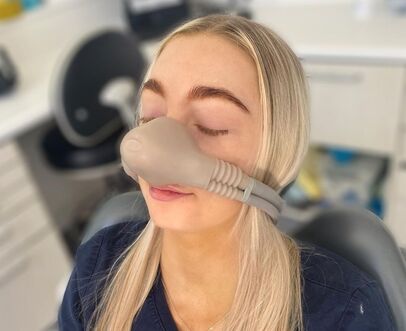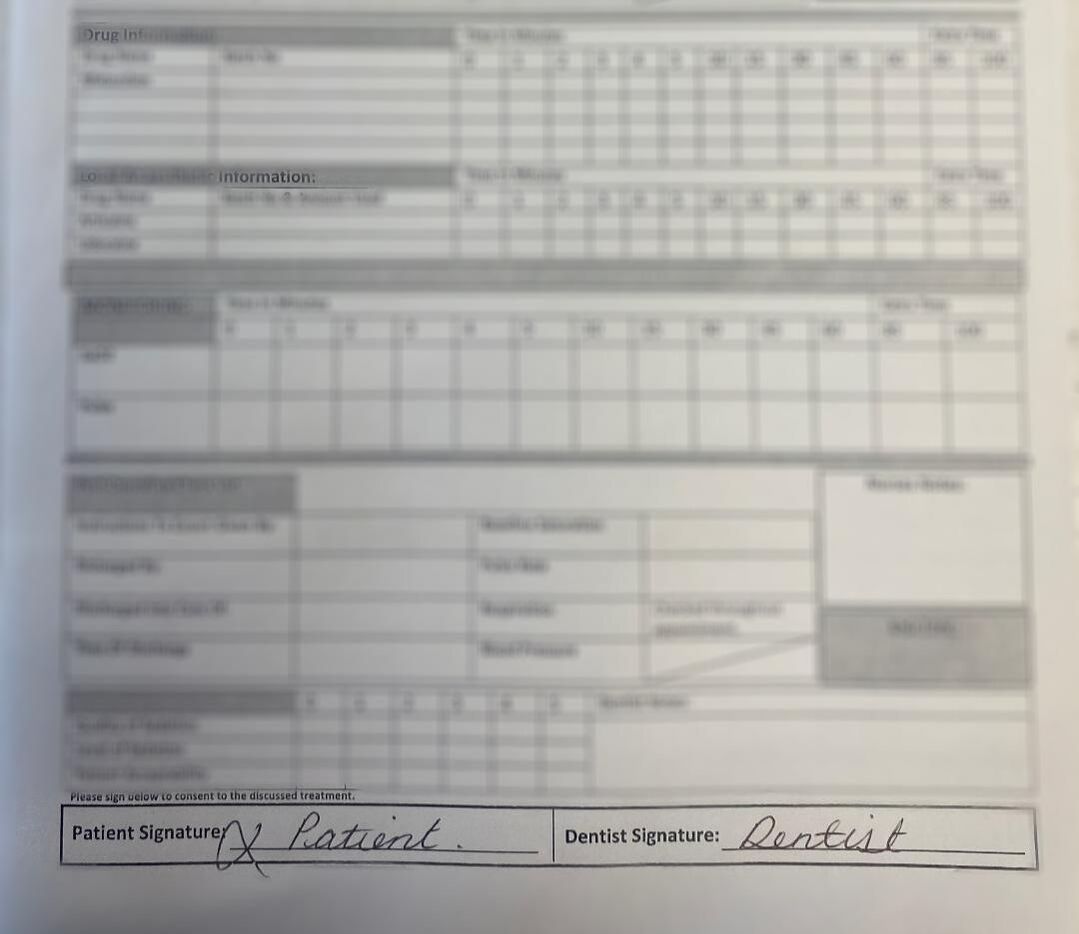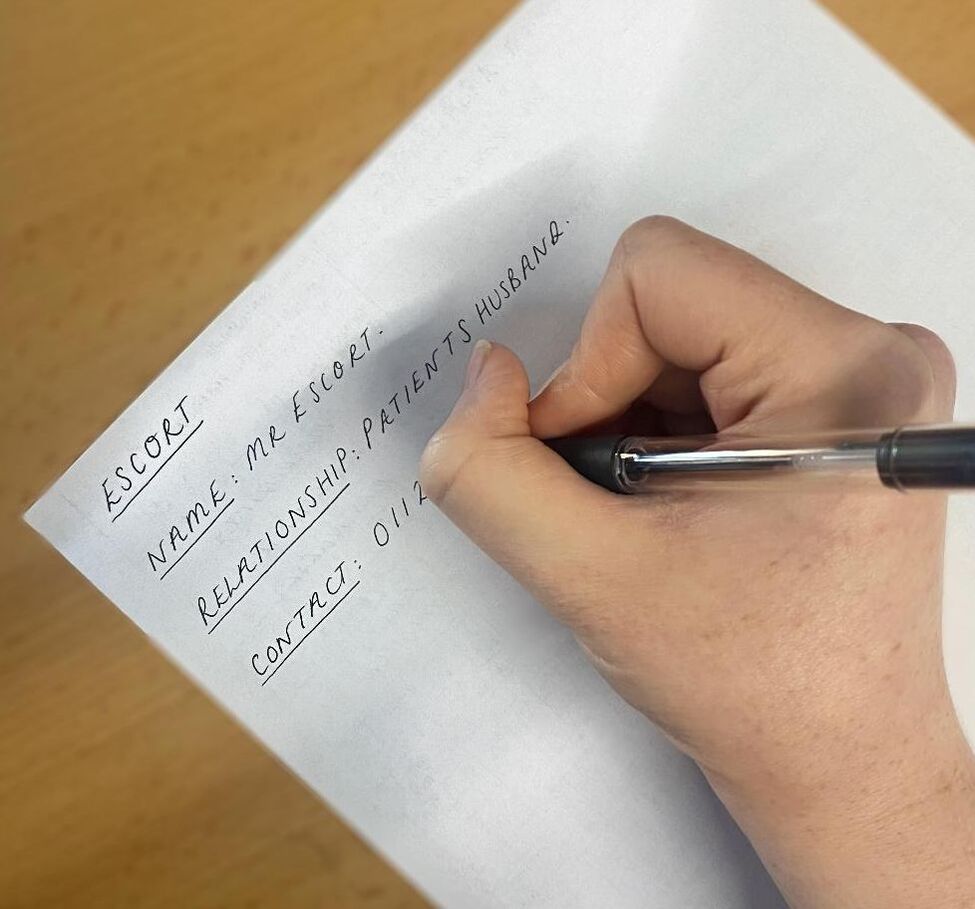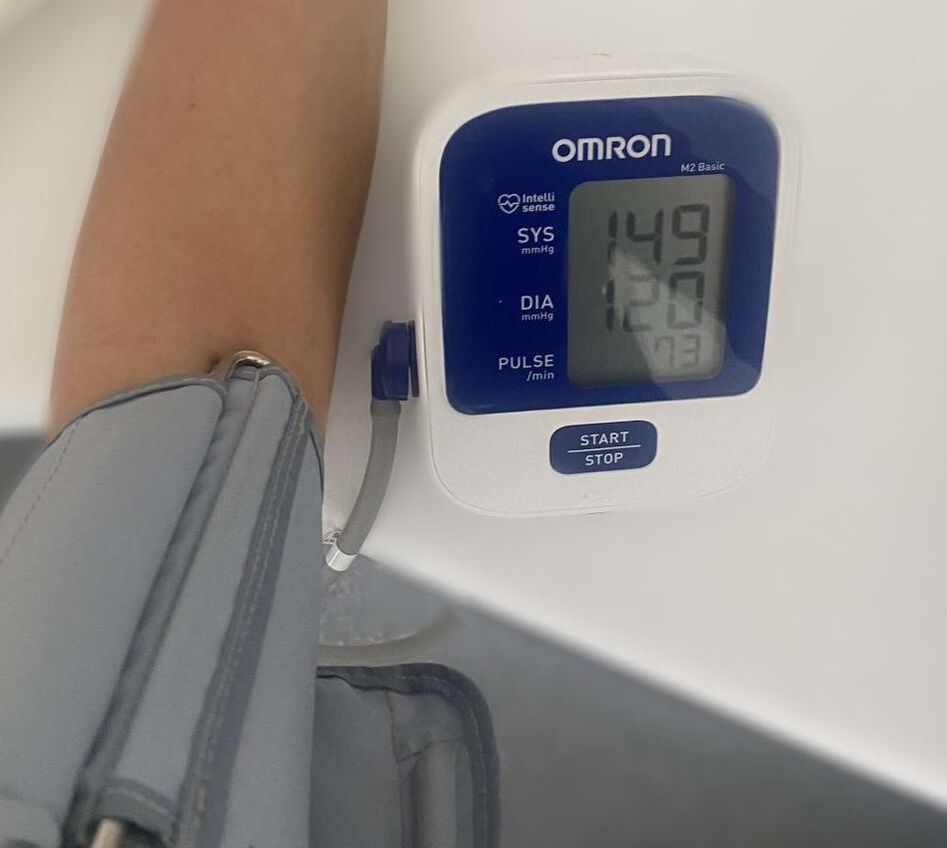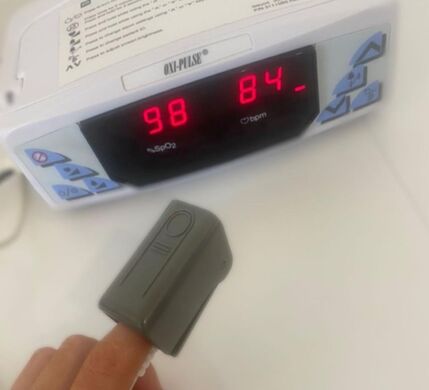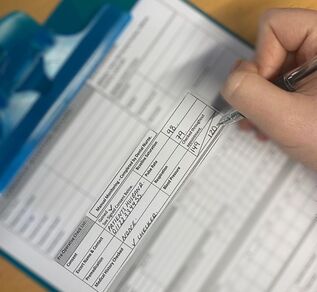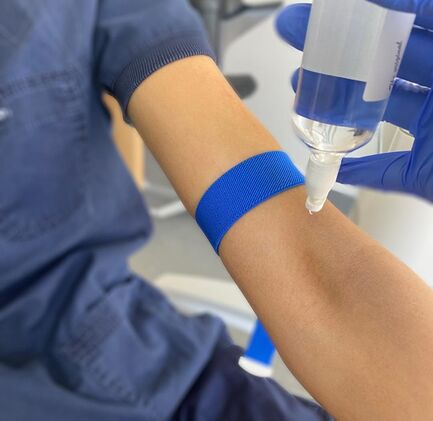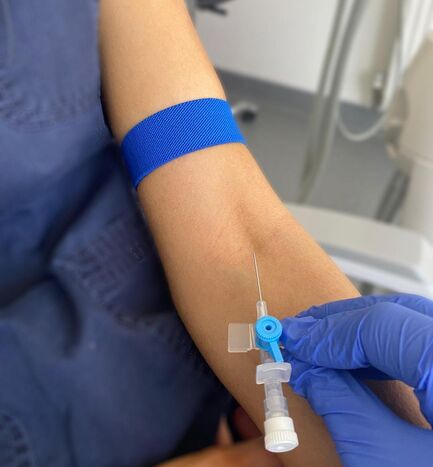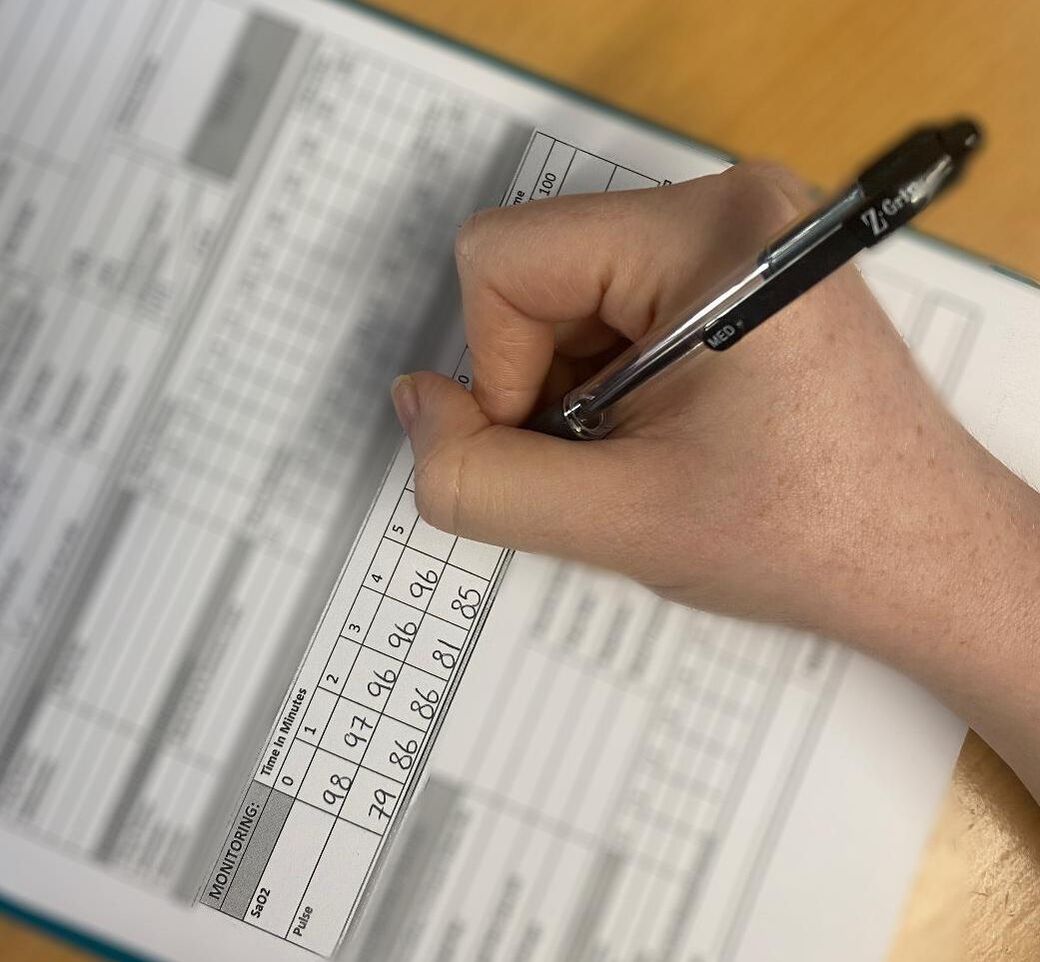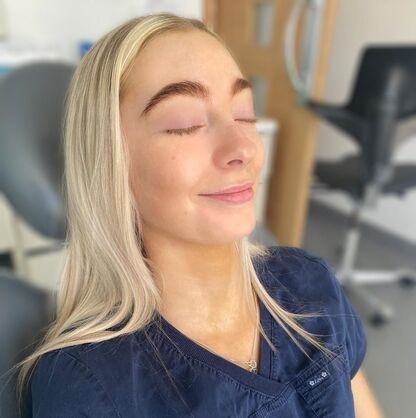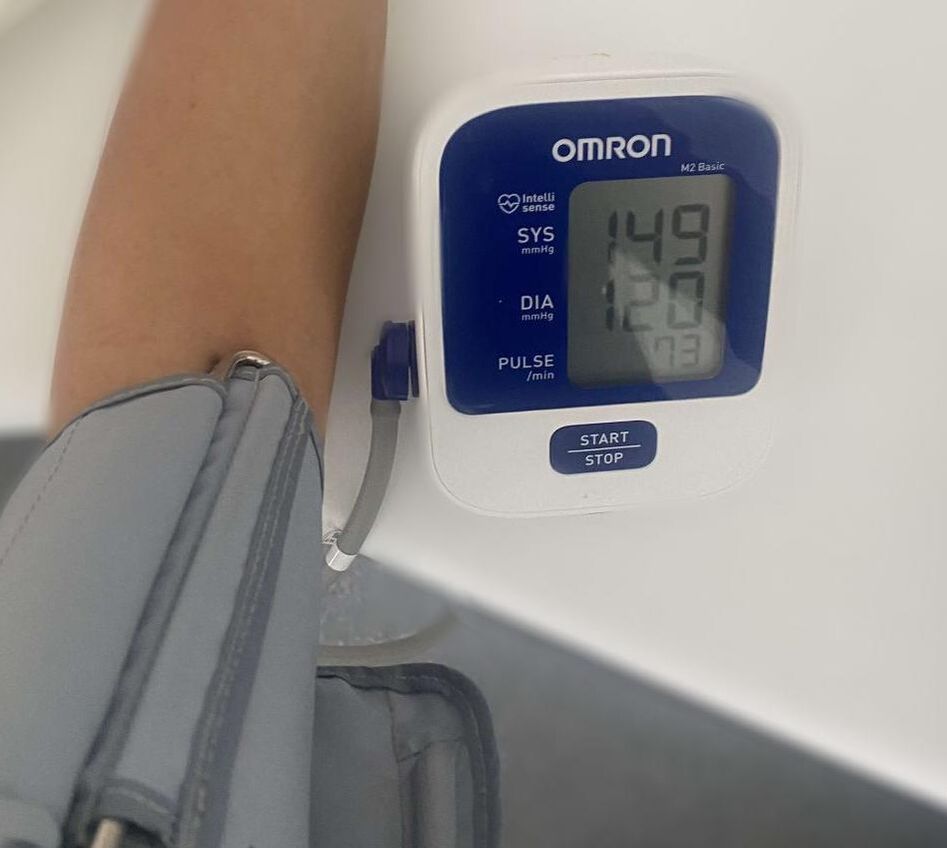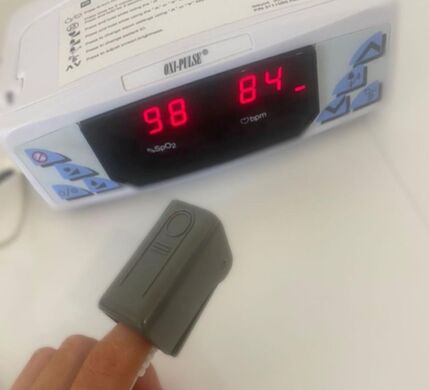- SEDATION SERVICES -
What Is Sedation?
Sedation involves using a variety of medications or drugs to help reduce your anxiety while receiving dental treatment. These may be provided orally, breathed in or injected directly, via a small tube into a vein. |
Prior to your sedation treatment appointment you will be required to attend a pre-operative assessment. Patients must be assessed on a case by case basis, which allows consideration of their specific needs. This includes: medical history, what dental care is to be undertaken, If we have not sedated you before, or if your medical circumstances have changed. Depending upon your medical history, this may need to include a discussion with your general medical practitioner, where in doubt, we prefer to be safe. Sedation is safe but it cannot be provided 'on demand', or for patients with complex or unstable medical problems, some of whom we will need to refer to our colleagues in hospital. |
Our principal dentist and our clinical support staff, are experienced in the provision of sedation. We have undertaken thousands of cases in both intravenous & inhalational sedation. Our objective is to help make any care as easy to tolerate as possible whilst keeping you safe. |
Can We Provide Sedation In An Emergency?
No.
These types of procedures are difficult to provide in emergency circumstances. You will need to take into consideration the following information...
You will need to attend a pre-operative assessment prior to your sedation appointment to assess you and your needs. |
You will need an escort on the day of your procedure (although in rare circumstances we will monitor you until it is safe for you to leave, only for inhalation sedation cases however and never for intravenous sedation). |
You may need to be monitored by your escort for several hours after your procedure, so ensure that your escort is somebody who will be free on the day of the procedure. |
We need sufficient available time for the sedation appointment, this is usually decided at your pre-operative assessment and once the Dentist has assessed the radiographs. |
We both need to know in advance exactly what is going to happen (especially for anxious patients) so we would always encourage patients to come in and discuss their problems first, even if we don't actually do anything else at the first appointment. |
What Sedation Services Do We Provide?
Inhalation Sedation. |
Intravenous Sedation. |
What Is Inhalation Sedation?
Inhalation Sedation - also known as "relative analgesia" is a sedation technique which uses a mixture of oxygen and nitrous oxide. This mixture is inhaled through a nose piece; so its important that the nose is clear and un blocked, it is very important that the patient is able to breathe in & out through their nose on the day of the appointment, and that any asthma or other chest conditions are well controlled. |
This method will not put you to sleep, although you will feel drowsy, and may also feel "melty" and "floaty". This method is mainly used on anxious children & young adults, but is also useful for some older patients as well. |
If you opt for this method of sedation we advise you attend your appointment with an escort who can look after you post-op. The only exception to this would be an adult patient where we have been able to observe them for 30 minutes after treatment but this is only done in rare cases where a patient is unable to have an escort. Driving may only be undertaken with extra care and is best delayed until at least 1 hour after the procedure. We suggest bringing a friend who can drive, or booking a taxi to take you home. Please note in some cases we may require a "pre assessment" appointment to determine if this sedation is appropriate for you. This would mean attending the practice on two separate occasions, one for the "pre assessment" appointment and one for the procedure. |
PLEASE SCROLL DOWN TO SEE INFORMATION FOR WHAT TO EXPECT AT A "PRE ASSESSMENT" APPOINTMENT. |
|
What Is Intravenous Sedation?
Intravenous Sedation - also known as "IVS" is a sedation technique which uses the drug midazolam, which is administered through a canulae. It is NOT a general anaesthetic as you may have experience in hospital, and you will NOT be unconscious - though as your memory of the appointment is likely to be impaired, it may feel as if you have been asleep afterwards. |
80% of patients will have a hazy or blank period of around 45 - 60 minutes; the other 20% will have a vague memory of some of the treatment. Because of this we will need to be able to explain to your escort what we have been doing, and how it went. This will include whether you have numb lips, had a tooth removed or a denture fitted and whether you need to take analgesics when your get back home. They need this information so they know what to expect and know when to seek further advice if problems occur. You should therefore ask someone you are comfortable having these sort of details disclosed to. |
If you opt for this method of sedation you will require a "pre assessment" appointment, prior to the treatment date. This means attending the practice on two separate occasions, although in some rare cases we can carry out these appointments on the same day. After the pre assessment appointment you will be given an appointment date for your sedation and treatment. You MUST attend your appointment with an escort who can look after you post-op who will care for you for at least 6 hours following being discharged. You must arrange NOT to drive or be left in sole charge of any small children or undertake any other responsible actions for the rest of the day. Although you may feel fine, you are not as coordinated or thinking as clearly as you may believe. |
PLEASE SCROLL DOWN TO SEE INFORMATION FOR WHAT TO EXPECT AT A "PRE ASSESSMENT" APPOINTMENT. |
During your intravenous sedation appointment...
Meet & Greet, Treatment Discussion & Medical History Checks...
Having had your "pre assessment" appointment prior to your sedation appointment (see information on this below), the dentist has determined that this method of sedation is suitable for yourself. When entering the practice you will be asked to sit in the waiting area. Our reception team may take a contact number from your escort just in case they need to leave the practice for any reason, as they will be required to look after you at the end of your appointment and be present for the post operative advice. When you enter the surgery on the day of your sedation appointment, the dentist and nurse will greet you. We will discuss briefly what we plan to do for todays appointment, (as we will have already discussed in detail at the "pre assessment" appointment). The dentist will check that we have up to date medical history records and if you have taken any pre-medication prior to the appointment. It is important to be very honest at this stage. |
Gaining Written Consent...
|
Escort Details & Information...
|
Pre-Operative Checks Begin...
Blood Pressure Taken...
|
Baseline Saturation & Pulse Rate Taken...
|
The Dental Nurse Records your Pre-Operative Information Prior To The Dentist Administering the Drug...
|
|
Pre-Operative checks now complete...
The procedure can begin...
|
Cannula Insertion...
|
Drug Administered...
Midazolam Administered through Cannula...
We will then administer a controlled drug called midazolam. This is carried out by the dentist. The midazolam will be fed through your cannula which has been put in place prior. The dentist will start with only small amounts, and we will monitor your reaction to this to ensure you are comfortable, safe and responding well to the medication. If in the event of an emergency, we need to "bring you back around" from the drug midazolam, we have a reverse drug that will do so. How much of the midazolam you require depends upon many different factors and is different person to person, this is why we administer it slow and monitor you throughout the administering process. |
The Dental Treatment Can Begin...
Administering Local Anaesthetic...
When we are happy that you are fully relaxed and responding well to the drug, we will begin treatment. You will still require local anaesthetic (needle in the mouth), even though you are "sedated", (please scroll down to find more information on why we use local anaesthetic). You will still be responsive and be able to follow our instructions and respond to us if necessary. For example: "please open your mouth" or "are you okay". Once you are numb, we can begin the discussed treatment. The nurse will make note of what local anaesthetic was used and at what time during the procedure. |
We will Monitor your Stats Throughout the Appointment...
|
The Effects of Midazolam...
|
Dental Treatment Complete...
Once the dental treatment is complete, there is usually a small frame of time left at the end of the appointment. This is because we are required to monitor you for a one hour duration, and often this length of time is not required to complete the dental treatment. In some cases we do over-run on the dental treatment however, in this instance we will continue to monitor you past the one hour duration. During this time period, at the end of the appointment, we will ensure you are cleaned up and can take this time to relax in the dental chair which will be still tipped back into the resting position. We will continue to monitor your stats throughout this time and keep checking you are comfortable. If your escort has left the building, this is the time in which our reception team will contact them, and ask them to return for the post operative checks and advice. |
1 hour after the start of the procedure...
Post Operative Checks & Advice can be carried out...
When the 1 hour period is up, the dentist will elevate your chair slowly and ensure you are comfortable. Your escort will now be present in the room. We will again take some final readings for part of the post operative checks. We will retake your blood pressure at the end of the appointment, comparing it to the readings taken prior, however taking into consideration that you have been sedated. We will also take a final reading for your baseline saturation and pulse rate. These will be recorded on the same record card as discussed prior for the pre-operative checks. We will take this time to give your escort the necessary advice for caring for you. |
The dentist will give your escort an information leaflet. This will have all the verbal information, written down. In the case of a tooth extraction, this will also include some medical gauze just in case you experience bleeding after the procedure. All of which is completely normal. The dentist will advise the escort that you take it easy for the rest of the day, avoid decision making and the internet, including social media. This is because even if you feel fine, you may still be experiencing some effects from the drug. This means that you will not be able to return to work or be in sole charge of young children, animals or vulnerable adults. |
Leaving the Surgery...
After the dentist has gone through all the post operative checks, advice and given your escort some information to take away, you are now able to be transferred into the care of your escort. The dentist will ask you to stand up, to gauge how "wobbly" you may be. If you are stable, which is the case in most patients after their procedure, you can safely leave. If your procedure is carried out on the second floor surgeries, we advice you take it easy on the steps down, we often suggest the escort to go in front of yourself, and one of our team members will monitor and escort you from the back. We have never had anybody fall down the stairs, but this monitoring ensures a safe exit out of the building. |
Leaving the Practice...
On the way out of the practice, your escort will take you to their vehicle, or alternatively escort you to the train station. If you have come by car, we ask that your escort places you in the car "hand on the head police style", to avoid any injuries to the head. Often patients report feeling tired after their procedure, so if you feel like you want a snooze in the car, or when you get back - this is fine and completely normal. We advise that you take it easy for the rest of the day. If you experience anything you aren't sure about, we are only a phone call away 01229 772319. |
You can find more information of these methods of sedation in the patient information documents available to download at the bottom of this page.
Pre Assessment Appointment...
Do I need a "Pre-Assessment" appointment for Inhalation Sedation? |
Rarely. |
In most cases, a "Pre-Assessment" appointment is not required for "Inhalation Sedation" appointments. In some rare cases however, where the treatment may be complicated, there are health concerns or anything the dentist may want to discuss with you prior to your "Inhalation Sedation" appointment, you may require a "Pre-Assessment" appointment. If you do require a "Pre-Assessment" appointment, prior to your sedation appointment, the dentist will be sure to inform you of this, writing this into your treatment plan. You will need to take into consideration that if you are required to attend a "Pre-Assessment" appointment, this will be an additional charge on top of the sedation appointment. |
Do I need a "Pre-Assessment" appointment for Intravenous Sedation? |
Always. |
In all cases, a "Pre-Assessment" appointment is required for "Intravenous Sedation" appointments. You will need to take into consideration that you are required to attend a "Pre-Assessment" appointment prior to this intravenous sedation, this will be an additional charge on top of the sedation appointment. |
What to expect at a "Pre-Assessment" appointment... |
1. You will attend the practice for your allocated appointment time. The reception team will greet you on arrival and ask you to sit in the waiting area. You are welcome to bring an escort to this appointment, this could be a friend, a partner or a family member. They are welcome to wait in our waiting area, or come into the surgery during your appointment if you require some extra morale support. This is why you should ensure your escort is trust worthy and somebody who you feel comfortable with us discussing your dental treatment plan in front of. |
2. Once your appointment time approaches, the dental nurse will collect you from the waiting area and ask you to come into the surgery. The dentist will greet you and ask you to take a seat on the dental chair. The dentist will have all your notes up on the computer, clinical records such as x-rays/photographs and/or your referral details (if you have been referred to us from another practice, which is quite common). We will discuss your medical history, any medication and your dental anxiety. Your dental |
3. The dentist will then look inside your mouth at the exact tooth that requires the treatment. The dentist will then discuss the intended treatment with you after visually inspecting your notes and intra-oral inspection of the tooth. The dentist may then show you the details on the computer, such as your x-rays/photos and discuss possible complications during the treatment. |
4. Once the dentist has discussed the intended treatment needed, you will then discuss the sedation procedure. The dentist will give you all the information you will need to know about the form of sedation that will be used on the day of your appointment. The dentist will check your blood pressure and oxygen to determine if this method of sedation is suitable for you. |
5. Once yourself and the dentist has allocated the best form of sedation taking into consideration the factors discussed during the pre-assessment appointment, you will then receive a treatment plan. The treatment plan will either be printed and given to you or emailed (preferred method). The treatment plan will include information on the chosen sedation method and the treatment required. During this time, you can ask any further questions you may have regarding your chosen sedation option or treatment. |
6. The dentist will send the appointment information to our
reception team who will then know how long to book for your procedure. On your
way out of the practice, after your pre assessment appointment, our reception
team will allocate you an appointment in our diary. Once you have been
allocated an appointment, the reception team will give you a written
appointment card that you can take away as a reminder or if you are required to
take time off work. You will also receive a reminder call the day before your
appointment to ensure that you are still able to attend. If after booking the
appointment, you feel you cannot attend for any reason, please don’t hesitate
to get in touch on 01229 772319, where our reception team will happily rearrange
or cancel this appointment. |
At the pre assessment appointment the dentist will discuss your medical history, any concerns and talk you through the intended treatment. . |
Do I Still Require Local Anaesthetic If I'm Being Sedated?
Yes.
Information on Local Anaesthetic:
Yes.
Information on Local Anaesthetic:
It is universally common practice within dentistry and medicine to utilise anaesthetic to mitigate the unpleasant effects of some of the procedures we undertake, though we do our best to reduce how often this is required. In dentistry this is usually a local anaesthetic. If we do not use these agents most patients would find many procedures such as removing a tooth to be intolerable, painful and almost impossible to undergo; ultimately leaving them with pain and the ongoing risk of infection, some of which can be life threatening. For some locations within your mouth, this will involve depositing the anaesthetic under the gum, next to your tooth and allowing it to diffuse and numb the area up. In some other sites, or under some circumstances - especially at the back of your lower jaw, or where a tooth is already sore, this is not as effective, so we may use alternative techniques referred to as a 'nerve block'. In a very small number of cases (within the margin of error of the research evidence this may be less than once in a dentists entire career), this can result in damage to the nerve we are making numb, which would result in either temporary or life long changes to how well it works. This could mean you have a numb or even painful lip for the rest of your life, and this can be difficult to treat and impossible to reverse. We will do our best to reduce the need for LA, as well as effectively manage any unavoidable comfort you would experience undergoing the procedure. We will use techniques which reduce to a minimum the risk of problems from the local anaesthetic itself, but cannot completely exclude the risk of a complication occurring. If you would like to discuss alternative, non pharmaceutical options such as hypnosis, please ask and we will arrange for a referral. Other techniques such as general such as general anaesthetic carry an increased risk of more serious life changing complications, including death so cannot be considered a 'problem free' alternative. There are other mild but more frequently occurring complications of giving local anaesthetic which can still be disconcerting, such as fainting, post operative soreness, bruising and bleeding within the tissues of your mouth (which could leave you temporarily unable to fully open your mouth, perhaps for several weeks), as well as possible temporary paralysis of the muscles which close your eye on the side of your face which is being made numb. Some patients also find that they are selectively sensitive to the effects of the adrenaline incorporated within most local anaesthetics solutions, and extremely rarely - some patients find themselves to have a genuine allergic reaction. If you have had any such effects, please tell us and we will use alternative solutions which avoid this component where at all possible to do so. In a very small number of cases, your medical condition, or some drugs you may ave been prescribed by your docor, may effect which type of anaesthetic we use, so please make sure you have completed our medical history form fully. If you are unsure of your medication names or how to spell them, ask your pharmacist or doctor for a copy of your prescription list, or ask us to contact them on your behalf. If you are anxious, and feel you would benefit from some extra support. we are able to offer. refer you for sedation to make the procedure more comfortable, though this too carries with it some very rarely occurring complications. |
Would I Benefit From Having Sedation?
Sedation is a very useful method for helping patients undergo dental care they may find difficult. For some patients this may be needed for all treatment or just for a specific procedure - such as a difficult extraction (see Oral Surgery tab). Our practice has a long standing reputation of caring for our patients (both adults and children) with dental anxiety, both with and without the use of the dental sedation services we provide. |
Prior to your sedation appointment you will have a "pre-assessment" appointment. This is so we can discuss the process of your treatment, the time it requires and to answer any questions you may have for us. This will also clarify if you qualify for the sedation services. |
You will NOT be the most anxious patient we have treated, your teeth will NOT be the worst we have seen, and no matter how irrational and embarrassing things seem, we are not going to "tell you off" or judge you. We will understand as we have heard it all before, many times. |
We are always sympathetic and will give you the time you need to cope with any situation, we will explain what is wrong, what your options are and what its going to feel like, so you can make a decision about what is best for you and whether you will be able to cope. |
what is the cost of Private Sedation Services?
Pre-Operative Assessment (Adult) |
Pre-Operative Assessment (Child) |
Inhalation Sedation |
Intravenous Sedation |
£110.00. |
£82.50. |
From - £330. |
£450.00. |
If you require some more information please click the links below. These are our patient information sheets. They discuss the different types of sedation we offer and also post operative advice for our patients. If you require anymore information on our sedation services, feel free to contact the practice on 01229 772319 and speak to a member of our team.
|
|
| ||||||
